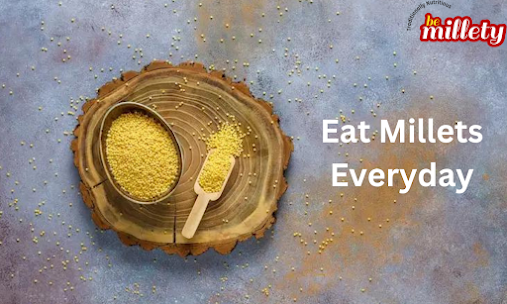Millets, small-seeded grasses grown in the semiarid tropics of Asia and Africa, provide 97% of the world's millet. These grains are nutrient-dense, abundant in fiber, proteins, vitamins, and minerals, and require less soil fertility and water.
Millets have numerous health benefits, including weight loss, blood sugar stability, immunity, cardiovascular disease prevention, blockage of allergies, digestion, and antioxidant properties. Millet is also beneficial for diabetes, weight loss, and heart patients due to its high nutritional content, gluten-free nature, and lower glycemic index.
Read Top 7 Reasons to Eat Millets Everyday to learn how to incorporate millet-based food products by BeMillety into your daily diet.
Incorporating millet into your diet can help maintain energy levels, lower blood sugar levels, strengthen immunity, block allergies, promote digestion, and help remove pollutants. Millet is also a great option for weight loss, as it can help reduce the BMI of obese people and promote long-term weight loss.
There are several types of millets, including kangni, ragi, bajra, kutki, and other key crop species. Kangni millet is high in protein and complex carbs, regulating blood sugar fluctuations, lowering bad (LDL) cholesterol, and raising good (HDL) cholesterol. Finger millet, also known as ragi, is a healthier cereal option, rich in protein and amino acids, and helps children's growth and brain function. Bajra, or pearl millet, is beneficial for enhancing general health, promoting weight reduction, and managing diabetes.




Comments
Post a Comment